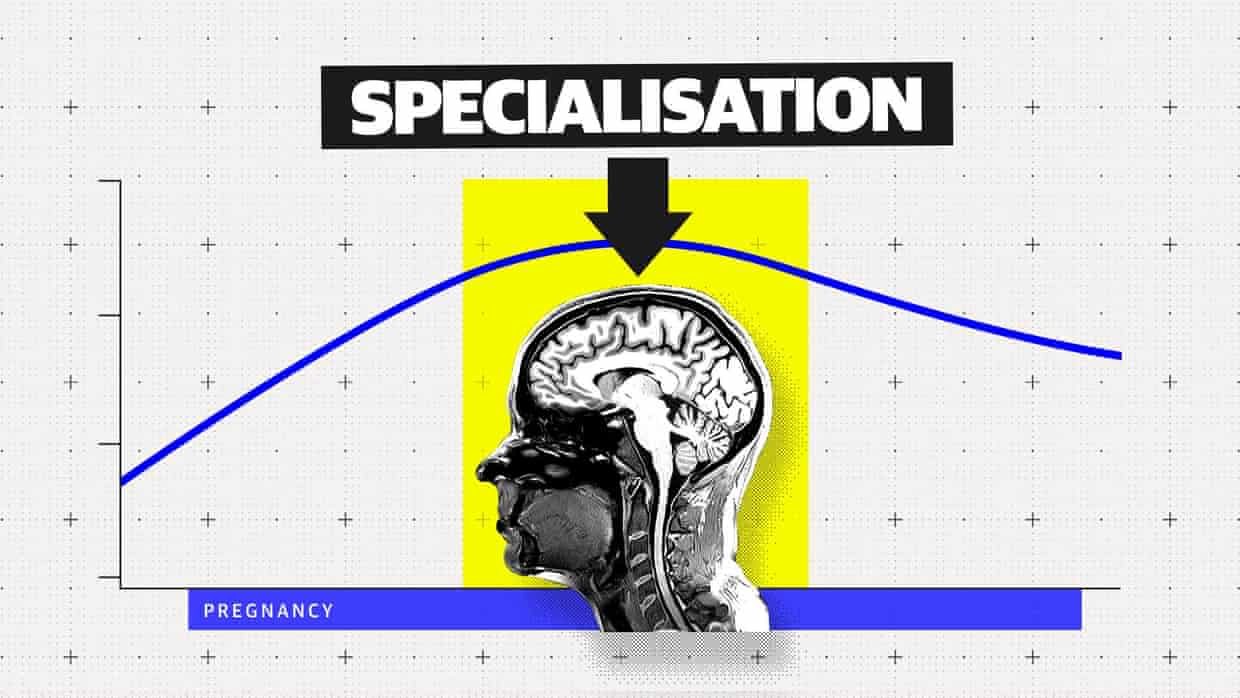Science
New Study Reveals Pregnancy Rewires Brain, Not Weakens It

Recent research highlights a surprising shift in our understanding of pregnancy and its effects on the brain. A study involving brain scans reveals that rather than causing cognitive decline, pregnancy actually leads to significant neural rewiring. This new insight challenges long-standing stereotypes surrounding “baby brain,” a term often used to describe the forgetfulness many women experience during pregnancy.
The findings suggest that the brain adapts in response to the demands of motherhood. According to researcher Neelam Tailor, the changes observed in the brain are not indicative of weakness but rather reflect a complex transformation that enhances a woman’s ability to nurture and care for her child. This crucial distinction sheds light on the cognitive and emotional adjustments that occur during pregnancy.
Understanding the Brain’s Adaptation
The study utilized advanced brain imaging techniques to assess the brain structure of pregnant women. Researchers found that pregnancy triggers a remodeling of neural pathways, enhancing areas related to emotional regulation and social cognition. This adaptation may help new mothers better connect with their infants and respond to their needs effectively.
While many women report experiencing forgetfulness, this phenomenon is not a sign of diminished cognitive capacity. Instead, it represents a reallocation of brain resources. The brain’s plasticity allows it to prioritize functions that support maternal instincts, which are essential during the early stages of a child’s development.
Implications for Neuroscience and Caregiving
The implications of this research extend beyond neuroscience; they touch on broader issues of women’s health and caregiving. By recognizing that pregnancy rewires the brain rather than depleting it, healthcare providers can offer more informed support to expectant mothers. This shift in perspective may also encourage further exploration into how women’s health is understood and addressed in medical research.
The findings contribute to a growing body of literature that emphasizes the importance of considering women’s unique health experiences. As society becomes more aware of the complexities of pregnancy, there is potential for improving maternal care and support systems.
Ultimately, this study encourages a reevaluation of the narratives surrounding pregnancy and cognitive function. By fostering a deeper understanding of the brain’s adaptability, we can better appreciate the transformative journey of motherhood and its impact on women’s health. The research not only challenges outdated stereotypes but also opens the door for future studies that may further illuminate the intricate relationship between brain function and pregnancy.
-

 Technology4 months ago
Technology4 months agoDiscover the Top 10 Calorie Counting Apps of 2025
-

 Health2 months ago
Health2 months agoBella Hadid Shares Health Update After Treatment for Lyme Disease
-

 Health2 months ago
Health2 months agoErin Bates Shares Recovery Update Following Sepsis Complications
-

 Technology2 weeks ago
Technology2 weeks agoDiscover 2025’s Top GPUs for Exceptional 4K Gaming Performance
-

 Technology4 months ago
Technology4 months agoDiscover How to Reverse Image Search Using ChatGPT Effortlessly
-

 Technology2 months ago
Technology2 months agoElectric Moto Influencer Surronster Arrested in Tijuana
-

 Technology4 months ago
Technology4 months agoMeta Initiates $60B AI Data Center Expansion, Starting in Ohio
-

 Health4 months ago
Health4 months agoTested: Rab Firewall Mountain Jacket Survives Harsh Conditions
-

 Technology4 months ago
Technology4 months agoRecovering a Suspended TikTok Account: A Step-by-Step Guide
-

 Lifestyle4 months ago
Lifestyle4 months agoBelton Family Reunites After Daughter Survives Hill Country Floods
-

 Technology3 months ago
Technology3 months agoUncovering the Top Five Most Challenging Motorcycles to Ride
-

 Technology3 weeks ago
Technology3 weeks agoDiscover the Best Wireless Earbuds for Every Lifestyle




















